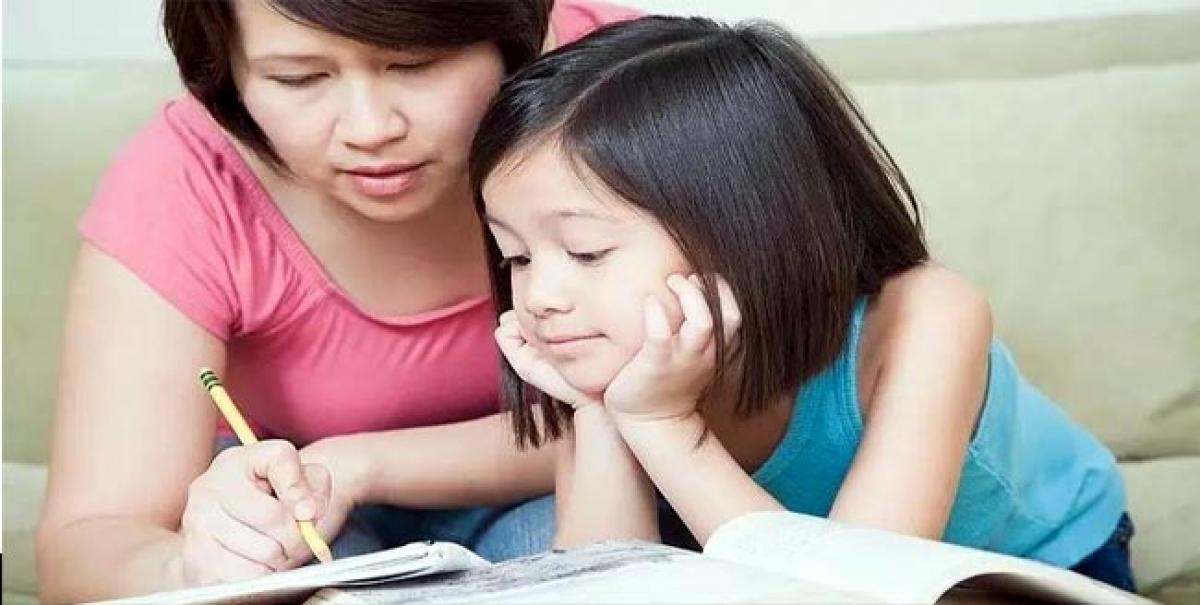Live
- Save Birds This Sankranti: Say No to Harmful Kite Threads
- Foundation Stone Laid for New Power Substations in Wanaparthy Constituency
- Emami Unveils Smart And Handsome: A Bold New Identity for the Future of Men's Grooming
- KL College of Pharmacy Advancing Healthcare Innovations and Research in Neuropharmacology and Novel Drug Delivery Systems
- Free online seminar on Cybersecurity Careers
- Coal mine tragedy: Navy divers return as pumping operations continue to rescue labourers
- Scholarships for Students
- Trinamool to expel leader arrested in Bengal councillor murder case
- We've got quality local & international players in SA20: League commissioner Graeme Smith
- Fake call centre busted in Gurugram, 11 arrested
Just In

Education has evolved from the predictive measures of rote learning to depending upon one’s wit and skills to succeed. Today, in an era where knowledge is expanding at a burgeoning rate,
Education has evolved from the predictive measures of rote learning to depending upon one’s wit and skills to succeed. Today, in an era where knowledge is expanding at a burgeoning rate, it is fruitless for teachers to work feverishly in teaching young people lessons that have no practical consequences. Instead, educators across the spectrum from early childhood to college are opening up to the idea of equipping the children differently. Students need an extra edge, not only to go beyond their competitors but also to be responsible citizens of a bright tomorrow. The present generation needs life skills to survive and thrive in the 21st century.
Life skills are all those necessary abilities which are generally not taught through books or education curriculum but are indispensable aid in tackling problems of real life. Ideally, Parents or guardians are the first ones who show them the right path. Yet in the current hustle and bustle parents forgo the essentiality of life skills in favour of rigorous lessons in maths and science. In turn, at a tender age, children get waylaid and are unable to cope with the fine vagaries of life. Therefore, it has become mandatory to include life skill lessons in the educational curriculum. Here are ways where Life Skills acts as aids to not only education but life:
Nurtures sense of wonder
Inculcation of life skills from a younger level allows children to wonder, investigate experiment, ask questions, and suggest outlandish solutions/ideas. Questions that begin with “Why…?” “How…?” “What if…?” “So what…?” encourage critical thinking about an experience, promote creativity, and permit children to practice communication skills. These also help harness a scientific temperament amongst children, as they become experts at posing non-verbal questions. Through placing helpful cues, teachers can imbibe a sense of curiosity and a hunger to learn.
Emphasises effort over ability
Students learn more proactively, at a deeper level when they cement the belief on success based by effort rather than ability. Adults working with young children need to share their own stories of beginning efforts and improving with practice. Through earnest effort to come up with constructive solutions, children are taught the importance of hard work and determination to reach a life filled with critical appreciation and self satisfaction.
Encourages use of objects in diverse ways
Life skills encourage use of day-to-day materials in unique, innovative ways. It isn’t necessary to waste time in elaborative concepts but find solutions amongst the simplest things available. This not only supplements the growth of intuitive leaning but also teaches an integral lesson of self reliance, an ability that comes handy as one grows up. Multiple uses of common materials promote self-direction and innovative problem-solving, stimulating creativity.
Creates an environment for constructive feedback
Integration of essential skills helps eschew a space for peer assessment. Teachers should support children in sharing their views- what they liked and noticed, and what could be implemented usefully. Constructive feedback helps create self-awareness while forge bonds with the unlikeliest allies. Also a ready model available for a child to review helps in learning any skill, in the correct way and at a rapid pace. Carefully timed feedback, aided with the goal to uncover the process behind a result is crucial to encompassive learning.
Collaborate with others
Mentoring and collaboration are exceptional ways to build real life skills. Functioning side by side helps develop work ethics and model skills-essential for success as adults. As humans, one needs to be taught on the benefits of teamwork and living in the society as a collaborative being, all that can be imbibed from a young age. By adopting meaningful community service projects, social adaptability and responsibilities are easily enshrined within the basic doctrines of existence as a person. Even the simplest strategy of co-constructing with a child encourages communication and sharing of ideas.
The skills needed for success in the future will go far beyond the content of a conventionally drafted system. Life skills paves way to a well-balanced conscientious individual, ready to reach for the stars and go tackle adversities with the right tools.
(The writer is Co-Founder of Dolphin Pod, a learning centre that provides fun, interactive and inspiring education)
By Shobana Mahansaria

© 2025 Hyderabad Media House Limited/The Hans India. All rights reserved. Powered by hocalwire.com







